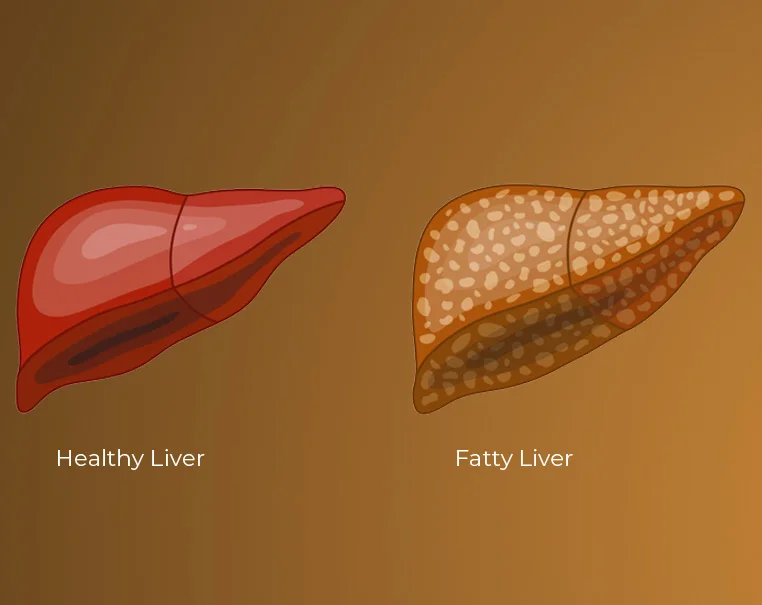Liver Detoxification Ayurvedic Approach: A Holistic Path to Liver Health

Strong 8k brings an ultra-HD IPTV experience to your living room and your pocket.
The liver is one of the most vital organs in the human body, playing an essential role in digestion, detoxification, metabolism, and immune system support. It filters harmful substances from the bloodstream, processes nutrients, and produces bile to aid in digestion. However, due to modern lifestyle choices such as poor diet, excessive alcohol consumption, pollution, stress, and exposure to toxins, the liver can become overloaded and sluggish. This is where liver detoxification becomes crucial.
In Ayurvedic medicine, liver detoxification is not just about cleansing the liver, but also about restoring balance to the body as a whole. Ayurveda, the ancient Indian system of natural healing, emphasizes a holistic approach to health by focusing on the balance of the mind, body, and spirit. Through the Ayurvedic perspective, liver detoxification is seen as a key process in maintaining overall health and vitality.
Understanding Liver Detoxification in Ayurveda
In Ayurveda, the liver is considered the seat of "Pitta" dosha, which governs metabolism, digestion, and transformation in the body. When Pitta is in balance, it supports efficient digestion and detoxification. However, when it becomes aggravated, it can lead to various health issues, including liver dysfunction. Ayurvedic liver detoxification aims to balance Pitta and restore harmony to the liver and digestive system.
Ayurveda advocates a comprehensive, natural approach to liver detoxification, incorporating dietary adjustments, herbal remedies, detoxifying practices, and lifestyle modifications. The process is designed not only to eliminate toxins but also to support the liver’s natural functions and enhance its ability to process and expel waste efficiently.
Key Ayurvedic Principles for Liver Detoxification
Balancing the Doshas
Ayurveda teaches that the three doshas—Vata, Pitta, and Kapha—represent different energies in the body that influence our health. An imbalance in any of these doshas can lead to diseases and disturbances in liver function. Pitta, in particular, has a direct influence on the liver, and its imbalance can cause inflammation, acidity, and liver-related problems. Ayurvedic liver detoxification focuses on reducing Pitta by using cooling and soothing herbs, foods, and practices.
Herbal Remedies for Liver Detoxification
Ayurvedic herbs have been used for centuries to support liver health and facilitate detoxification. Some of the most effective herbs for liver detoxification in Ayurveda include:
Milk Thistle (Silybum marianum): Known for its hepatoprotective properties, milk thistle is commonly used to promote liver health and regenerate liver cells.
Turmeric (Curcuma longa): With its powerful anti-inflammatory and antioxidant properties, turmeric supports liver detoxification by reducing inflammation and promoting the production of bile.
Bhumyamalaki (Phyllanthus niruri): This herb is particularly effective in protecting the liver from toxins and is often used in liver detox programs.
Dandelion (Taraxacum officinale): Dandelion root is an excellent herb for liver detoxification, promoting bile production and assisting in the removal of toxins from the body.
Triphala: A combination of three fruits—amla, bibhitaki, and haritaki—Triphala is often used to support digestion, enhance detoxification, and improve liver function.
Dietary Changes for Liver Health
Ayurveda emphasizes the importance of a balanced diet to support liver function. During a liver detoxification program, it is essential to follow a diet that is light, easy to digest, and rich in antioxidants. Foods recommended for liver detoxification include:
Bitter Greens: Leafy greens like bitter melon, kale, and dandelion greens help to purify the blood and promote detoxification.
Fresh Fruits and Vegetables: Rich in vitamins and minerals, fruits such as apples, pears, and citrus fruits help to cleanse the liver.
Whole Grains: Foods like quinoa, brown rice, and oats support digestion and provide sustained energy without overburdening the liver.
Lemon Water: Drinking lemon water on an empty stomach in the morning is a time-tested Ayurvedic remedy for liver detoxification. Lemon helps to stimulate bile production and supports the liver's detoxifying processes.
Ginger and Garlic: These potent herbs are excellent for stimulating the digestive system and promoting the detoxification of the liver.
Detoxifying Practices
Ayurveda also recommends certain practices to help facilitate liver detoxification. These include:
Panchakarma: This is the cornerstone of Ayurvedic detoxification therapy, involving a series of treatments like oil massages, steam baths, and herbal enemas. Panchakarma aims to eliminate accumulated toxins (ama) from the body, restore dosha balance, and enhance liver function.
Abhyanga (Oil Massage): Daily self-massage with warm oils helps to soothe the body, improve circulation, and facilitate the release of toxins from the liver and other organs.
Yoga and Meditation: Regular yoga practice can help to improve digestion, reduce stress, and support the body’s natural detoxification processes. Specific asanas such as the Cobra Pose (Bhujangasana) and the Seated Twist (Ardha Matsyendrasana) are particularly beneficial for liver health.
Lifestyle Modifications for Liver Health
Along with herbal remedies and dietary changes, Ayurveda also recommends certain lifestyle modifications to support liver detoxification. These include:
Adequate Sleep: The liver’s detoxification processes are most active during the night. Ensuring sufficient and restful sleep allows the liver to perform its functions optimally.
Avoiding Toxins: Reducing exposure to environmental toxins, such as pollution, harsh chemicals, and alcohol, is essential for liver health. Ayurveda suggests limiting or eliminating alcohol consumption and avoiding heavy or processed foods.
Hydration: Drinking plenty of water throughout the day helps to flush out toxins and supports the liver in its detoxification process.
Liver Detoxification Ayurvedic Timeline
An Ayurvedic liver detoxification program typically lasts between 7 to 21 days, depending on the individual’s condition and health goals. During this period, individuals follow a regimen that includes herbal remedies, a liver-supportive diet, and daily detoxification practices.
It is important to note that Ayurveda stresses the importance of individualized care. Therefore, the detoxification process should be customized based on the person’s unique constitution (Prakriti), current imbalances (Vikriti), and specific needs.
Conclusion
Liver detoxification Ayurveda is a holistic process that not only focuses on cleansing the liver but also works to restore balance to the entire system. By incorporating Ayurvedic herbs, dietary changes, detoxifying practices, and lifestyle modifications, individuals can support their liver’s natural ability to detoxify, restore energy, and prevent diseases. By aligning with the wisdom of Ayurveda, one can achieve lasting liver health and overall well-being.
Embracing a natural, balanced approach to liver detoxification ensures that the liver functions optimally and the body remains free of harmful toxins, leading to a healthier and more vibrant life. If you're considering a liver detoxification program, it's advisable to consult with an Ayurvedic practitioner to tailor the best plan for your individual needs and health goals
Note: IndiBlogHub features both user-submitted and editorial content. We do not verify third-party contributions. Read our Disclaimer and Privacy Policyfor details.




